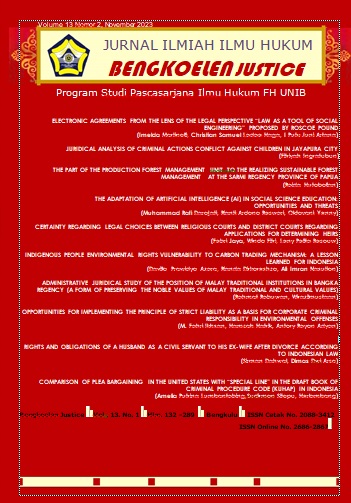Main Article Content
Abstract
Developed countries are strictly obligated to reduce carbon emissions due to their industrial activities,
contributing to a major concentration of greenhouse gases in the atmosphere. This paper aims to provide
a basic overview of carbon reduction provisions under Kyoto Protocol and climate change frameworks
development through the years. Practically in developing countries, its provision requires funding and
transferring technology schemes by developed countries. The carbon markets emerged from Clean
Development Mechanism (CDM) as a so-called eco-friendly project which potentially turns into a new
form of capitalism in developing countries along with a tendency to depend on funding and transferring
technology itself. Indigenous people are targeted groups directly affected by CDM projects and often
neglect their fundamental rights. State is obligated to provide a forum for indigenous people to
participate in the level of socializing, consultation, and law-making process of CDM as its nature being
the most vulnerable group.
Keywords: Carbon trade; climate change; environmental rights; indigenous people
Article Details
Copyright (c) 2023 Davilla Prawidya Azaria, Rianda Dirkareshza, Ali Imran Nasution

This work is licensed under a Creative Commons Attribution-ShareAlike 4.0 International License.

Ciptaan disebarluaskan di bawah Lisensi Creative Commons Atribusi-BerbagiSerupa 4.0 Internasional.
